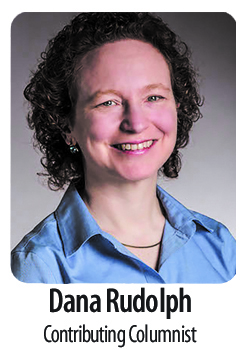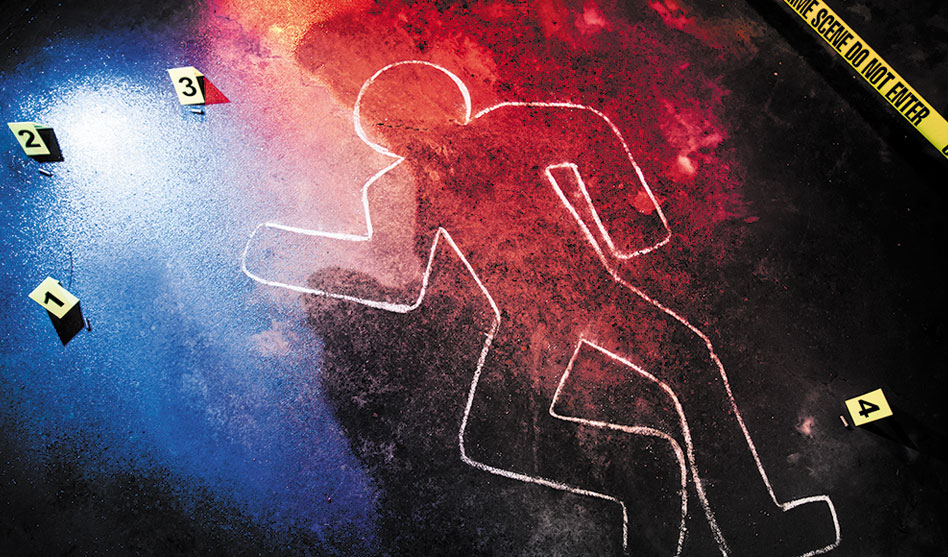Once again, we find ourselves struggling to understand, respond after another mass shooting
 This was going to be a very different column — until 19 children and two adults were shot and killed by a gunman at an elementary school in Uvalde, Texas.
This was going to be a very different column — until 19 children and two adults were shot and killed by a gunman at an elementary school in Uvalde, Texas.
As I started composing this column in my head, something about that first sentence made me pause. I then realized it was nearly identical to what I’d written almost a decade ago when 20 children and six adults were killed by a gunman at an elementary school in Newtown, Conn.
Have we learned nothing as a nation about protecting our children since then? Apparently not.
The unconscionable shooting at the mostly Latinx Robb Elementary School in Uvalde comes just 10 days after 10 Black people were murdered in a shooting in Buffalo. And while the victims of any shooting are someone’s children, when the victims are young children, their deaths hit me — and I’m sure many others — like a gut punch.
School shootings have been one of my main fears as a parent and remain so, even though my son is grown. My heart breaks for the families of the victims and for the children who survived but will have to grapple with ongoing fear and trauma.
In 2022 so far, there have been at least 77 incidents of gunfire on school grounds in the U.S. (six in Texas), resulting in 14 deaths and 45 injuries, reports Everytown for Gun Safety, the largest gun violence prevention organization in the country. The first half of the 2021-2022 school year was the deadliest in recent history, they say. “Deadly” and “school year” in the same sentence — consider how horrifying that is.
As a society, we give much lip service to doing things “in the best interests of the children.” Repeated mass murders of children, over decades, are as far from their best interests as one can get.
The right-wing, which has done nothing to further gun control, nevertheless has wielded a “best interests of the children” argument against LGBTQ parents and LGBTQ kids (particularly transgender ones). It claims to care about the lives of fetuses but will do nothing to protect children from gun violence after they are born.
There is something deeply wrong with that ideology.
A country has failed its citizens when it cares less about protecting them and more about allowing them access to firearms — particularly semi-automatic weapons like those used in Newtown, Buffalo, Uvalde and many other mass shootings.
Gun control is only part of the solution — the Buffalo shooting, for example, underscored the continuing need for increased action against White supremacy and racism — but it is a key step. We need stronger background checks and bans on the sale of semi-automatic rifles and high-capacity magazines, among other restrictions.
(And no, armed guards, much less armed teachers, in schools is not an alternate solution. Studies have shown this is not effective, and there are high risks of hitting a child rather than an attacker during a chaotic and stressful situation. See Valerie Strauss’ piece in the May 25 Washington Post.)
I write this on the cusp of Pride Month — the original subject of this column. Pride has come to be a time of celebration, but this year it feels wise to remember its roots as a protest.
LGBTQ equality is facing some of its biggest challenges since the marriage equality battle, with a surge of anti-LGBTQ, particularly anti-trans, legislation around the country. Reproductive rights are under attack, impacting both queer and non-queer people. And gun violence continues to rise.
No one is immune from gun violence in the U.S., but for those of us in marginalized communities that have been targeted by such violence because of our identities — LGBTQ people, people of color and Jews, among others — the fear and the need for change may feel even more pressing, bound up with our other work towards social justice.
I therefore hope you’ll consider joining one of the “March for Our Lives” protests across the country on June 11 in support of stricter gun control (see MarchForOurLives.com). Please also call or write to your elected officials about this issue, and make gun control a factor when you vote. Support organizations working for gun control; donate if you can and help elevate their messages regardless.
For those looking for ways to help young children process their feelings around this latest shooting or around ongoing active shooter drills in their schools, I recommend Sesame Street’s resources — visit SesameStreetInCommunities.org and search for “gun violence.” Additionally, publisher A Kids Company About is making their A Kids Book About School Shootings downloadable free at AKidsCo.com. Written by a survivor of the 1999 Columbine High School shooting, it is aimed at ages 5 to 9.
And for people who need it, the Disaster Distress Helpline, 1.800.985.5990, is a 24/7, 365-day-a-year, national hotline with immediate crisis counseling for people experiencing emotional distress related to any natural or human-caused disaster.
I’d like to say I have hope that things will change, but I said the same after Columbine and after Newtown and after all the other shootings. In the absence of much hope that we will see change anytime soon, I find myself turning for strength to a saying from my Jewish tradition: “You are not obligated to complete the work, but neither are you free to desist from it.”
We must resist, persist and not desist. We owe it to our children.
Dana Rudolph is the founder and publisher of Mombian (mombian.com), a GLAAD Media Award-winning blog and resource directory, with a searchable database of 1000+ LGBTQ family books, media, and more.













